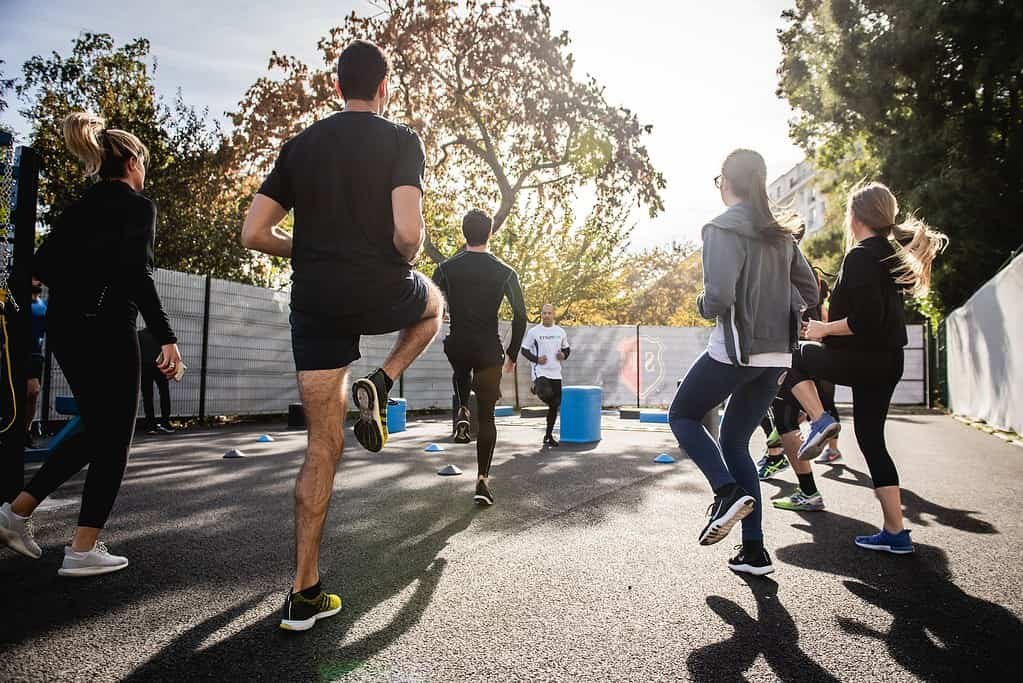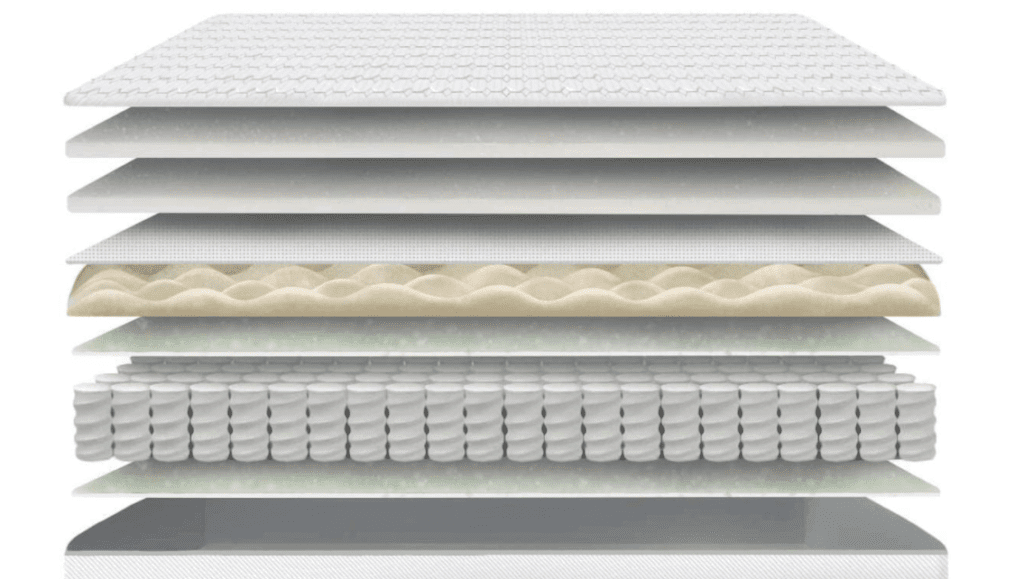Exercise for Sleep: Proven Techniques for Better Rest
Exercise and Sleep: Exploring the Connection
Sleep and physical activity share a complex and mutually beneficial relationship. Regular exercise not only tires the body, promoting the need for quality rest, but it also improves athletic performance and workout recovery. Exercise supports our ability to fall asleep faster and experience more restorative sleep. Scientific research supports the positive effects of regular exercise on sleep quality. By exercising, our body’s internal clock, or circadian rhythm, is regulated, which promotes consistent sleep patterns. Physical activity can alleviate symptoms of insomnia and sleep apnea and effectively reduce stress and anxiety.
The saying “a healthy mind in a healthy body” remains relevant today, as engaging in regular exercise brings about various benefits:
- Exercise serves as a natural mood enhancer
- Exercise alleviates stress and anxiety
- Exercise bolsters self-esteem and confidence
- Exercise significantly enhances sleep quality, thus improving mood and mental clarity
In essence, exercise provides a comprehensive approach to improving both physical and mental health while also promoting better sleep. Striking the right balance between physical movement and mental relaxation is crucial for overall well-being. Therefore, I view exercise as an essential component in attaining a balanced and rejuvenated state from head to toe.
When is the Optimal Time to Exercise for Sleep?
Morning Exercise
Benefits: Beginning your day with a workout can enhance your attentiveness and mood. Morning exercise can establish a constructive atmosphere for the day, increasing metabolism and mental acuity.
Effect on Sleep: Those who exercise in the morning often enjoy a deeper, more rejuvenating sleep, and research indicates they maintain a more consistent sleep routine.
Afternoon Exercise
Benefits: Late afternoon workouts benefit from optimal body temperature and muscle functionality, which may lead to improved performance and a lower risk of injuries.
Effect on Sleep: Exercising in the late afternoon can alleviate daily stress, setting the stage for a relaxed evening. However, for some people, this could result in a slight delay in bedtime due to increased alertness following exercise.
Evening Exercise
Benefits: Engaging in physical activity in the evening can be an excellent way to unwind after a long day. Activities such as yoga and tai chi can be particularly calming for the mind before bedtime.
Effect on Sleep: The relationship between exercise in the evening and sleep quality has long been debated. Traditional advice discouraged late-night workouts, fearing they might disrupt sleep. However, recent research suggests that evening exercise does not necessarily hinder sleep. Nevertheless, high-intensity activities may elevate core body temperature and adrenaline levels, potentially impairing sleep onset.
Recognising these biological patterns enables individuals to tailor their fitness and sleep habits optimally. However, it’s crucial to remember that circadian rhythms vary between individuals. For some, an energetic evening jog might promote high-quality sleep, while others might find morning workouts better aligned with their sleep objectives. In any case, regular physical activity, regardless of timing, typically leads to improved sleep quality and duration. Consistency in maintaining an exercise routine is vital.
Why Exercising with Insufficient Sleep is Not Recommended
Insights on Exercise and Sleep Dynamics
Facing the challenge of deciding whether to power through fatigue for a workout or skip it due to lack of sleep can be difficult. However, there are several potential risks and considerations to keep in mind:
- The strain on the heart: Engaging in intense exercise while sleep-deprived can place unnecessary stress on your heart.
- Reduced energy and stamina: Inadequate sleep may result in your body not having enough time to recover and restore energy levels, leading to quicker fatigue and diminished workout intensity.
- Increased injury risk: When tired, your reaction times slow down, leaving you more vulnerable to missteps, trips, or falls, particularly in activities that demand fast reflexes.
- Impaired motor skills: A sleep-deprived brain has difficulty processing information effectively and communicating with muscle groups, compromising coordination and making individuals more prone to accidents.
- Delayed muscle recovery: Sleep is crucial for repairing and growing muscle tissue. Without sufficient sleep, this recovery process can be disrupted, potentially causing muscle fatigue and soreness.
- Hormonal imbalance: Sleep is vital in balancing muscle recovery and growth hormones. Insufficient sleep can elevate cortisol levels (a stress hormone) and decrease testosterone and insulin-like growth factor (IGF-1), essential for muscle repair.
- Mood fluctuations: Sleep deprivation may result in mood swings and a reduced tolerance for stress. Exercising in this state could result in increased frustration and diminished satisfaction from the workout.
- Lower motivation: The drive to start—or even complete—a workout can significantly diminish when operating on limited sleep.
Guidelines on Balancing Sleep and Exercise
Listen to your body: If you’re feeling exhausted or observe any of the previously mentioned signs, opt for a lighter activity or rest day. Value sleep: Remember that sleep is an essential pillar of overall well-being, including fitness. Prioritising sleep over a single workout session can be more beneficial in the long run.
While occasionally exercising with limited sleep might not be harmful, persistently neglecting rest and pushing through intense activities can lead to diminished performance, increased injury risks, and other negative consequences. It is worth noting that physical activity is undeniably one of the most effective ways to ensure a restful slumber. However, not all exercises yield the same results. Consider undertaking a variety of activities to improve sleep quality effectively.
- Yoga – Yoga is an effective method of improving sleep quality as it unifies physical movements with breath regulation and meditation, promoting relaxation and stress reduction. Specific postures, primarily forward bends and restorative positions, trigger the parasympathetic nervous system and induce a sense of tranquillity, positively influencing sleep preparedness. Consider practising poses such as child’s pose, savasana, and legs up-the-wall before bedtime to derive maximum benefits from your yoga routine.

- Walking – Walking is a gentle, low-impact exercise that helps reduce the time it takes to fall asleep and enhances sleep quality. The steady pace of walking, particularly in natural settings like parks or beaches, can have a calming effect, facilitating a peaceful night’s sleep. Incorporate a brisk 30-minute walk into your evening routine, which can be especially beneficial if you have a pet that needs to be walked. To introduce mindfulness into your walk, consider engaging in a technique like Walk Away Stress.
- Tai Chi – Tai Chi, often viewed as a moving meditation, involves slow and purposeful movements combined with deep breaths. This can help decrease stress and anxiety, thus promoting higher-quality sleep. Those attempting Tai Chi can focus on basic moves and sequences that emphasise the synchronisation of breath and fluid movement.
- Pilates – Pilates, like yoga, encourages breath control during exercises while concentrating on core strength and flexibility. This practice leads to a relaxed state post-workout, promoting better sleep. Consider trying a beginner Pilates routine in the late afternoon or early evening to help ease your muscles and mind.
- Aerobic Exercise – Aerobic exercises such as cycling, running, or swimming effectively increase heart rate and stimulate the release of mood-enhancing chemicals in the brain. Engaging in moderate aerobic activities, particularly during mornings or afternoons, can improve sleep quality at night. It is recommended to participate in 20-30 minutes of moderate aerobic exercise on most days of the week. After exercising, consider a brief guided meditation to help unwind.

- Progressive Muscle Relaxation (PMR) – Progressive Muscle Relaxation (PMR) is a technique that focuses on sequentially tensing and relaxing individual muscle groups, helping individuals recognise muscle tension sensations and experience deep relaxation with consistent practice. To practice PMR, begin at the toes and progress upwards, concentrating on each muscle group, hold the tension for a few seconds, and then release. Experiment with PMR at bedtime using resources such as Deep Sleep Relax for optimal results.
- Strength Training – Incorporating strength training exercises can enhance sleep quality and alleviate symptoms of anxiety and depression. It is essential to avoid heavy lifting close to bedtime as it might be overstimulating. Engage in full-body workouts during the late afternoon or early evening for optimal results. Consider trying Flexible Upper Body sessions to experience the benefits of resistance exercises.
- Breathing Exercises – Deep breathing techniques, like diaphragmatic breathing or the “4-7-8” method, can elicit a relaxation response, preparing the way for restorative sleep. – Before going to bed, it’s essential to find a comfortable position and concentrate on taking deep, slow breaths while prolonging the exhale. Practising mindfulness exercises can help you fall asleep more quickly and enhance the overall quality of your slumber.
To select suitable exercises that support sound sleep, consider the following guidelines:
- Opt for exercises that you genuinely enjoy. This transforms the activity into a reward rather than a chore, increasing the likelihood of maintaining the habit.
- Select activities that align with your present fitness levels and physical capabilities. Steer clear of exercises that cause discomfort or strain.
- Tailor the activities to match your abilities. If high-intensity exercises aren’t an option, light walking or stretching can still yield benefits.
Frequently Asked Questions
What kinds of exercise enhance sleep quality?
Exercise can significantly improve sleep quality. Some practical exercises for better sleep include moderate to aerobic activities, such as walking and swimming. These help relax the body and mind, leading to more restful sleep.
How does aerobic exercise influence sleep?
Aerobic exercise boosts oxygen consumption, improves breathing, and strengthens the heart and circulation. As a result, it helps people fall asleep more quickly and enhances sleep quality.
Can exercise assist in overcoming sleep apnea?
Yes, exercise can help manage sleep apnea symptoms. One of the main contributing factors to sleep apnea is being overweight. Exercise, when combined with a healthy diet, can help in losing weight and reducing the severity of sleep apnea.
Which breathing techniques support better sleep?
There are a variety of breathing exercises that can aid in sleeping. Some well-known techniques include:
Box Breathing: Inhale for four seconds, hold for four seconds, exhale for four seconds, and hold for another four seconds.
4-7-8 Breathing: Inhale for four seconds, hold for seven seconds, and exhale for eight seconds.
These exercises help slow the heart rate, reduce stress, and induce relaxation, which can contribute to better sleep.
How does exercise affect sleep cycles?
Exercise can impact your sleep cycle by increasing the amount of time spent in deep sleep stages. Deep sleep, or non-REM sleep, is critical for physical recovery and cognitive functions. Studies have found that proper exercise can alleviate sleep-related problems and promote adequate rest.



